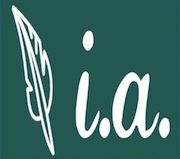If you are an author or publisher about the newest form of book piracy, Controlled Digital Lending. If you click the link you will get the Trumpian positive spin. It almost rises to the level of Clinton. The real knife through the chest can be found in the following quote from the page.
Indeed, one significant advantage of CDL is addressing the “Twentieth Century Problem” of older books still under copyright but unlikely ever to be offered digitally by commercial services.
This is Google book piracy on steroids. You remember Google’s massive book piracy project, right? It still exists. Just go to books.google.com. They scanned countless numbers of in-copyright books without paying the author or publisher and without getting permission of either. Then they decided on just how much (20%) of the book they would allow a reader to view. It never used to be a fixed 20% either, but a 20% based on your search criteria so if you ever landed on the table of contents or the index and had half a dozen friends you could get the entire content for free while viewing Google ads. At least I remember seeing ads on the site when I found out my $90 technical book was being offered up there for free.
How did I find out? Someone from India emailed me demanding I send them a complete copy of the book in Word format (professionals don’t use Microsoft products) to put on their company server. Why this demand? They had taken the time to do exactly what I said above, taking screen shots. They claimed to have the entire book but the images weren’t searchable. They wanted to put my book on their company server (for free) so everyone could have access to it and it would be easily searchable.
That’s how I found out. I never got paid for any of that and have been told by more than one Indian technical recruiter there are print copies of that book all over India where companies running OpenVMS have been off-shoring jobs. They aren’t copies which I printed or got paid for.
Now the Internet Archive is looking to do the exact same thing.
At the Internet Archive, we believe passionately that access to
knowledge is a fundamental human right.
through purchase or digitization,
I quoted the first line and the one critical snippet is in bold, “or digitization.” The line about purchase tries to make this sound all up and up but, from Google we know that piracy rules. Those who trumpet “knowledge is a fundamental human right” always intend to screw the knowledge creators. They aren’t talking about negotiating and completing purchase of all rights to the work from the creator at a price the creator feels is fair. They are talking about you, buying an album or CD then uploading it to an Internet site where anybody in the world can then pull it down for free ensuring the artist never gets paid another dime. Piracy. People go to prison for that.
Even in the U.K. you go to prison for that.
What they are really talking about here is borrowing a book from the local library and scanning it into a site where everyone can pull it down for free. Even if they somehow did manage to make a purchase it would be for a single copy then it would be uploaded just like that music so anyone could get it without ever having to pay the creator just like that music site.
Google book piracy on steroids and why shouldn’t they try. The CEO and board of directors from Google should have went straight to prison yet the department of injustice did absolutely nothing.
Please take a moment to read the February 2019 appeal to readers and libraries. If you agree, find an advocacy group and help support them. Better yet, write the Justice Department and demand they prosecute both Google and the Internet Archive for massive book piracy.
Authors need to eat and live indoors too.



Like too many other industries of the nineteenth and twentieth-century, considerations for labor have fallen under the trampling boot of profiteers guided by new age plantation and mansion owners. Why pay a fair wage or any wage when you can hold down the author, publishers, and distributor with an army of lawyers and closed marketing systems? And then, Roland finds out our work can be stolen by a foreign country while Washington dithers in hearings becoming millionaires and eating fried chicken. It’s tough to be gracious and forgiving in defeat.